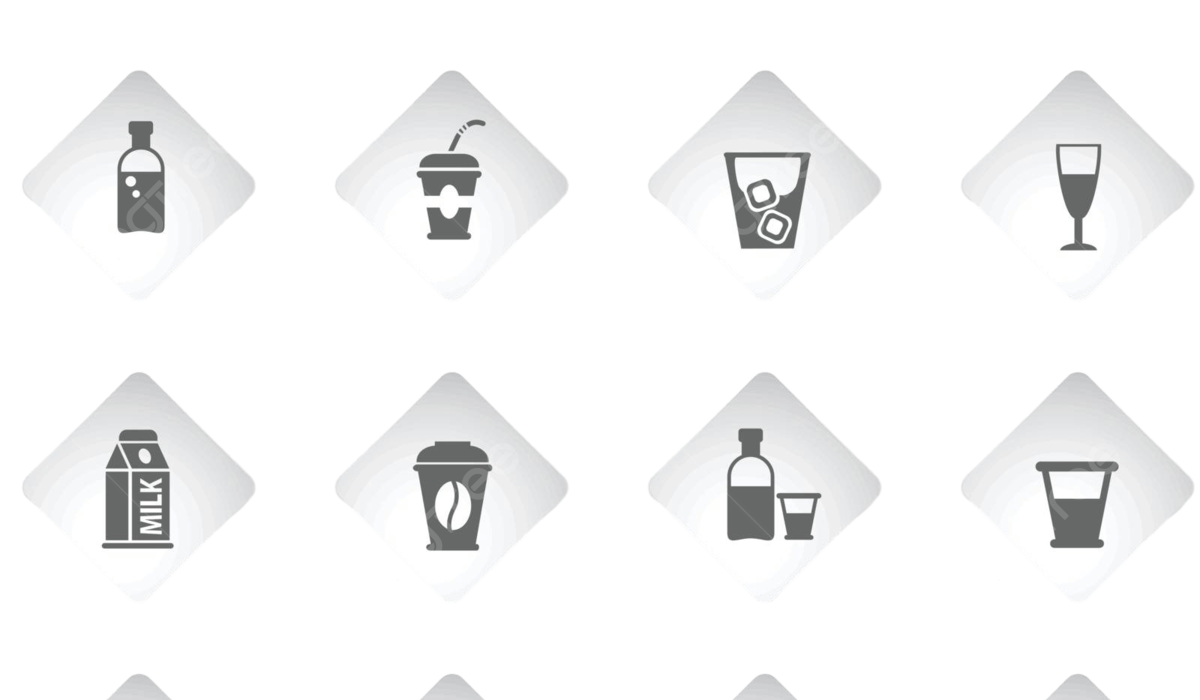In contemporary society, the consumption of beverages such as coffee and juice has transcended mere appetite satisfaction. This cultural phenomenon not only showcases a diverse array of flavors but also invites a careful examination of how they are perceived and represented in digital imagery. The notion of transparency, in this context, is particularly salient. When one considers “coffee and juice with transparent background,” it invokes a dialogue regarding the aesthetics of digital design, consumer culture, and the semiotics of beverages. This treatise intends to explore the complexities surrounding this topic while challenging the reader to reconsider their consumption patterns and visual representations.
Understanding the digital representation of beverages requires an emphasis on the significance of visual culture in modern consumerism. The proliferation of smartphones and social media has engendered a culture where visual representation is paramount. Coffee cups adorned with intricate latte art, vibrant juices overflowing with fruits, and the simplicity of minimalist design are all part of this tapestry. These images not only serve aesthetic purposes; they also act as conduits for social signals and identity construction. The representation of coffee and juice with transparent backgrounds offers a unique lens through which to analyze consumer behavior and its implications.
Visual Culture and Consumer Identity
The intersection of visual culture and consumer identity unveils a complex relationship. The appreciation of coffee and juice images is far from trivial; it reflects deeper societal values. Coffee, often associated with energy and productivity, finds its place as an emblem of modern work culture. Conversely, juice may symbolize health consciousness and vitality. Both beverages cater to different facets of consumer desire, yet they are commonly celebrated in similar visual formats.
This minimalist representation, particularly with transparent backgrounds, strips away contextual clutter and directs attention to the beverage itself. It facilitates an immediate emotional response from the viewer, engaging them in a moment of desire. A transparent background implies cleanliness, simplicity, and elegance, evoking a sense of sophistication. This can also be seen as a challenge to the consumer: who are you when you choose your beverage? Are you the over-caffeinated professional or the health-aware individual? Such choices become markers of identity, and how one represents these choices in visual media speaks volumes.
The Semiotics of Beverage Representation
The aesthetic choices made in the presentation of beverages like coffee and juice reflect broader trends in semiotics, the study of signs and symbols as elements of communicative behavior. When coffee or juice is visually represented with a transparent background, it shifts the focus from the context of consumption to the essence of the product itself. This is an intriguing characteristic, as it inherently frames the beverage as the protagonist in a larger narrative about lifestyle and consumer choice.
In consumer culture, the signs associated with various beverages can carry extensive connotations. Coffee, particularly in artisanal or specialty forms, is frequently aligned with notions of luxury and craftsman-style production. The image of a meticulously brewed cup of coffee on a minimalist backdrop can evoke an artisanal narrative of care, quality, and sophistication. In contrast, juice presented with a transparent background often emphasizes freshness and vibrancy, beckoning the consumer to engage in a lifestyle intertwined with health and natural ingredients. This distinction underscores a fascinating duality within the beverage market, one that reflects broader cultural narratives.
The Role of Marketing in Shaping Perception
Marketing strategies capitalize on these visual representations to shape consumer perception and behavior. The choice of imagery—particularly the use of a transparent background—becomes an instrumental aspect of branding. For instance, brands that employ vibrant colors against clear backgrounds can create striking images that are not merely aesthetic but communicative. Such strategies can enhance brand identity, drawing in consumers who aspire toward the lifestyles being portrayed.
Furthermore, the prevalence of visually-driven platforms like Instagram has further heightened the need for brands to engage with consumers through alluring images. The demand for visually stimulating content that encapsulates not just the product but the experience surrounding it cannot be overstated. This has led to the phenomenon of ‘photogenic’ beverages, which are crafted not only for taste but for their appearance, ensuring they are worthy of social media sharing. The underlying challenge for consumers thus becomes a consideration: to what extent are they active participants in this visual economy?
The Intricacies of Aesthetic and Consumption
As consumers navigate the complex world of beverage choices, the aesthetics of coffee and juice become intertwined with individual identity and self-expression. The images of coffee and juice with transparent backgrounds transcend mere product showcasing; they encapsulate lifestyle aspirations, health consciousness, and societal expectations. The presence of such images on various platforms invites scrutiny and prompts questions concerning authenticity and aesthetic appreciation.
Additionally, the commodification of beverages through aestheticized representations calls for critical examination. The challenge lies in recognizing the implications of engaging with such imagery. The interplay between choice, representation, and identity raises pivotal questions: Are consumers genuinely expressing their preferences, or are they subconsciously conforming to curated visual narratives presented by brands? The images of coffee and juice can, indeed, become a reflection of aspirational lifestyles rather than genuine choices.
Conclusion: A Call to Reflect and Engage
The exploration of coffee and juice with transparent backgrounds unveils a richly layered discourse on the dynamics of consumption, identity, and visual representation. As you consider the next cup of coffee or glass of juice, reflect upon the significance embedded within that choice. How does the imagery surrounding these beverages influence your perception? In what ways do the visual representations challenge or affirm your identity? While these beverages may seem trivial, they serve as potent symbols in the dialogue about modern lifestyle choices. The challenge, therefore, is to engage deeply with these choices, recognizing their implications and the narratives they propagate.
